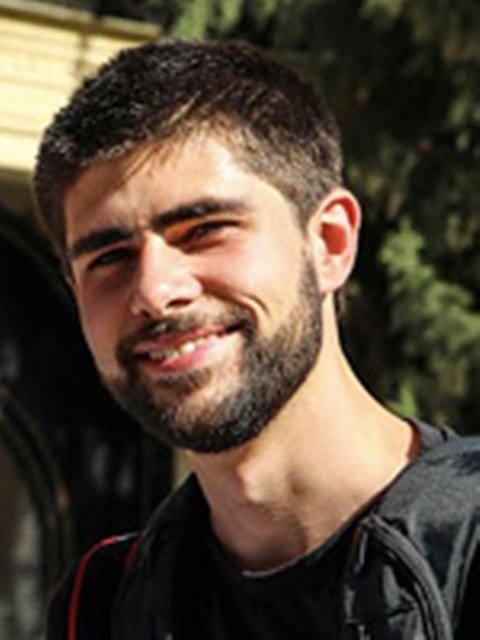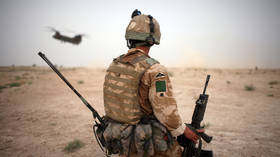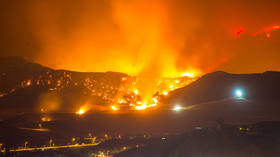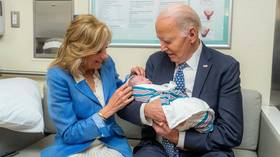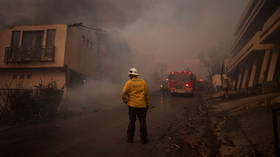Why ICC prosecution won’t help improve human rights in N. Korea
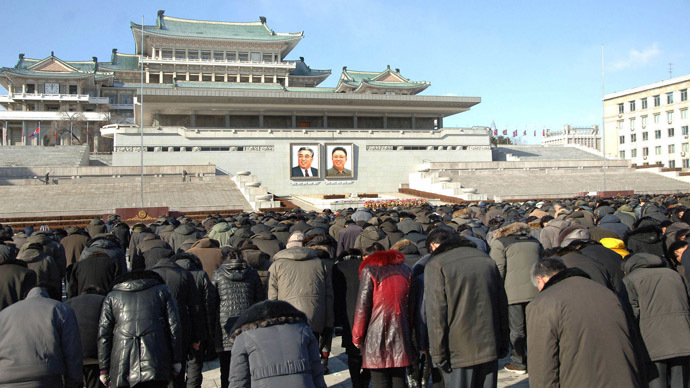
If improving human rights conditions in North Korea is the real aim of the international community, putting the country’s political leadership on trial is a non-starter.
A recent vote at the UN General Assembly called for North Korea to be referred to the International Criminal Court (ICC) over alleged human rights abuses. Pyongyang has faced growing international pressure following the publication of a UN Commission of Inquiry (COI) report in February accusing the country of committing crimes against humanity against its own population.
The 372-pagereporton rights violations in North Korea primarily raises concerns over the country’s penal system, where it claims citizens have been subjected to arbitrary detention, torture, executions and deliberate starvation. Authors of the report have made resolute comparisons between Pyongyang’s alleged abuses and those of Nazi Germany.
North Korea has categorically denied the COI’s findings, claiming the report is intended to provide a moral justification for a foreign military intervention into the country under the auspices of protecting human rights – a scenario that would not be without precedent when country-specific UN special procedures have been sought in the past, such as the case of Libya.
While the commission represents the first attempt by the UN to broadly investigate human rights conditions in North Korea, there are genuine misgivings about the methodology of the report and the low standards of proof used to support prosecutorial measures, suggesting a politicized outcome that may not reflect the actual conditions in the country.
Examining the report
While Pyongyang has expressed openness to engaging in human rights dialogue and allowing international investigation teams into the country in recent months, it did not initially allow COI researchers to investigate inside North Korea. The conclusions of the report rely on circumstantial evidence obtained from testimonials of defectors residing in South Korea, international experts and human rights organizations.
Eighty interviews were conducted in a public hearing setting throughout the commission’s investigation, with just thirty first-hand testimonials from North Korean defectors. The majority of the report’s findings are based on 240 confidential interviews of unspecified witnesses and experts who chose to remain anonymous for fear of reprisals. The circumstantial and largely confidential nature of the testimony renders the report’s conclusions impossible to independently verify or refute.
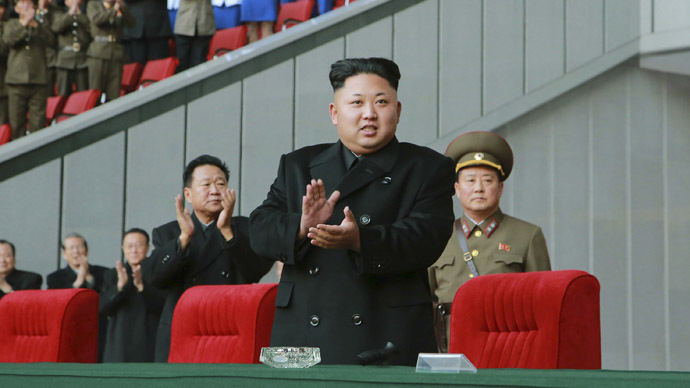
Some would argue that the commission’s findings depend on a relatively low threshold for evidence, as testimony alone is insufficient to demonstrate a mass extermination and warrant prosecution for crimes against humanity. The report itself concedes: “This standard of proof is lower than the standard required in criminal proceedings to sustain an indictment, but is sufficiently high to call for further investigations into the incident or pattern of conduct and, where available, initiation of the consideration of a possible prosecution.”
Furthermore, there is no way to establish whether the report’s conclusions relied on the judgments of partisan experts or members of the North Korean exile community who may have been compelled to misrepresent aspects of their testimony or overlook other interpretations of events in the interest of reaching an outcome compatible with the political positions of the states that aided the commission.
The authors declared in advance they wanted to determine and identify the institutions and specific officials guilty of rights violations, though the report itself does not adhere to this stated objective. Though the commission identifies and censures various domestic institutions for complicity in violations, it operates on the expectation that all rights violations were carried out with the endorsement of the highest level of the state, and thus does not make publically available the names of the culprits for further investigation.
In addition to withholding the names of individual perpetrators, the report does not identify any direct orders under which crimes were carried out, nor does it prove the existence of such orders. Moreover, the commission does not examine the possibility that accused individuals may have attempted to prevent violations from taking place, and would largely be unable to attempt answering such questions without the cooperation of Pyongyang.
Though the report discusses a wide range of abuses, the predominant allegation is that North Korea has maintained a program of mass-execution against political prisoners over the last five decades, though the commission put forward no specific casualty figure. The authors equate these acts to genocide, but acknowledge that such a program would be outside the contemporary definition of genocide under international law. Therefore, the use of the term ‘genocide’ appears to be more a product of political considerations rather than a conclusion based on empirical evidence.
The proceedings have strayed from their declared purpose of investigating individual perpetrators of human rights to a focus on prosecuting North Korean leader Kim Jong-un and the country’s political leadership at the ICC. The COI report concludes by calling on the international community to intervene to ensure that Pyongyang’s political leadership is brought to justice, prompting several UN member states to accuse the commission of being politicized, confrontational and ultimately not conducive to efforts aimed at improving rights conditions in the country.
Cooperation versus confrontation
Cuba’s delegation at the UN claimed that ICC referral on the basis of country-specific mechanisms sets a dangerous precedent that could be used to aggressively intervene in the affairs of developing countries. Havana also proposed an amendment that called on the commission to drop prosecutorial measures and instead apply an approach based on cooperation. Cuba’s proposed amendment was unfortunately not adopted. When examining the question of human rights in the context of North Korea, the highly selective use of UN mechanisms to prosecute political leaders will be merely symbolic and fail to meaningfully improve the situation inside the country.
The priority for the commission should be to work toward establishing a platform for cooperation on fulfilling human rights obligations, a prospect that North Korean officials have supported. Pyongyang has countered criticism by expressing its willingness to cooperate with countries that aren't hostile to it, and through offering historic invitations for dialogue to the EU’s Special Representative for Human Rights and the UN’s Special Rapporteur for North Korean Human Rights.
Pyongyang has recently passed a series of market-oriented economic reforms and has also taken measures throughout the past year to improve relations with South Korea. The country is focusing on deepening ties with neighbors, generating economic growth and investment, and it recognizes the importance of improving its reputation for human rights to make progress on the aforementioned goals.
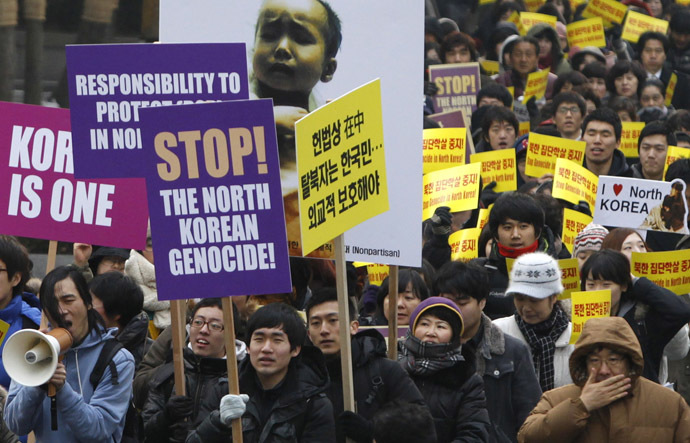
It has passed several pieces of human rights legislation domestically since 2009, while Korea specialist Dr. Andrei Lankov has claimed the last decade has seen a notable “lessening of repression.” The COI report depicts a situation that is beyond the means of being corrected without some form of international intervention, however the country’s internal dynamics and openness to address human rights should to be taken into consideration.
So Se-pyong, the North’s ambassador to the UN, agreed to accept the adoption of a wide range of Human Rights Council recommendations earlier this year, such as allowing greater access and monitoring conditions for international aid organizations, a moratorium on the death penalty, penalties for rights violators, and measures to enhance freedom of thought. If implemented, these developments could help ease international pressure and greatly enhance human rights conditions inside the country.
North Korea's deputy UN ambassador Ri Tong Il has publicly acknowledged the existence of "reform through labor" detention facilities, but denied that the abuses described in the COI report take place there. International rights investigators have demanded access to these facilities, and it would befit North Korea to allow monitors to make observations about the overall conditions there in the interest of establishing ways in which humanitarian assistance can be utilized to improve the situation.
While there are undeniable challenges in documenting rights abuses and developing human rights conditions on par with the standards set in the United Nations Charter, the cooperative approach simply has a better chance of succeeding with North Korea. Moreover, the inherent selectivity and politicization of country-specific resolutions to persecute rights abuses is indicative of the deep structural biases in the UN’s human rights mechanisms, underpinning the notion that the United States and its allies operate on one tier of sovereignty, while states deemed to be recalcitrant are relegated to another.
The statements, views and opinions expressed in this column are solely those of the author and do not necessarily represent those of RT.
The statements, views and opinions expressed in this column are solely those of the author and do not necessarily represent those of RT.
